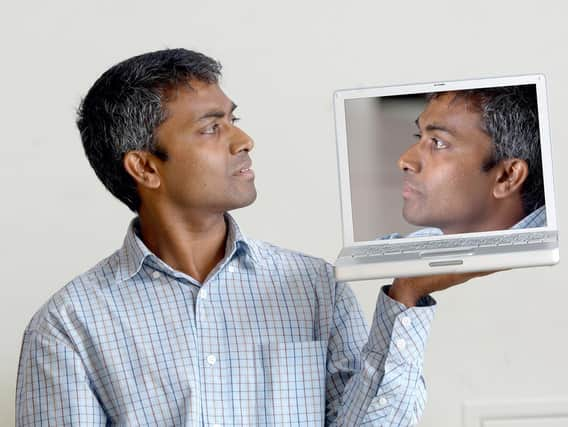University of Bradford professor says humans have 2,000 years before AI becomes 'too clever'


AI has proved a fascination for decades and some scientists around the world are concerned about the dangers that may come with super-intelligent technology systems.
Before his death in 2018, Professor Stephen Hawkings, one of Britain’s most pre-eminent scientists, warned that efforts to create thinking machines could pose a threat to the very existence of humans.
Advertisement
Hide AdAdvertisement
Hide AdHowever, Hussan Ugail, a Professor in Visual Computing who recently made global headlines after helping create the world’s ‘first virtual footballer’ and has helped produce artificially-aged images of missing Madeleine McCann, says fears over the dominance of AI are overstated and stressed humans will continue to have the upper hand for at least two millennia.
He told The Yorkshire Post that there is a vast difference between how humans and AI learn, and has claimed the human race has up to 2,000 years before AI becomes “too clever”.
Professor Ugail is based at the University of Bradford and is a world leader in computer-based human face analysis, including face recognition, face ageing, emotion analysis and lie detection.
He said that to teach AI how to recognise faces, it has to be shown millions of images of what a face is, while other images including pictures of items such as apples, pears, cars are also shown.


Advertisement
Hide AdAdvertisement
Hide AdHe said: “Eventually, the AI learns what a face is. When it comes to recognising faces, the computer algorithm uses about 4,000 characteristics to determine whether something is a match and that can be things like skin colour and texture but also the space between features such as the tip of the nose to the eyes and so on.”
Professor Ugail added: “It’s different to how people learn. If you show a three-year-old a green apple and tell them it’s an apple, even if they see a red apple later, they will still know it’s an apple.
“We’re still figuring out how the human brain does this, because the human brain makes a lot of generalisations, whereas the AI does not.”
The majority of Prof Ugail’s work focuses around facial recognition, which employs complex computer algorithms - or artificial intelligence - to ‘map’ thousands of facial features.
Advertisement
Hide AdAdvertisement
Hide AdHe was responsible for helping identify the Russian agents behind the Salisbury novichok poison attack in June 2018 and for uncovering the identity of President Putin’s alleged extramarital daughter in November 2020.
He was also sought out by journalists in 2018 to help solve the case of the missing Saudi journalist Jamal Khashoggi, who was killed inside the Saudi consulate in Turkey.
Prof Ugail said: “I think the fears of AI taking over are overstated. We’re moving into the realms of philosophy here, but I think humans still have one or two thousand years before AI becomes too clever.”
Prof Ugail’s most recent venture involved the AI creation and aging of Kiyan Prince, a football prodigy who was murdered at the age of 15.
Advertisement
Hide AdAdvertisement
Hide AdThe project, which resulted in a 30-year-old three-dimensional FIFA character of Mr Prince for the console games giant, EA Sports, was to increase awareness of knife crime after the teenager was fatally stabbed outside the London Academy in Edgware, London, in 2006.
Kiyan’s father, Dr Mark Prince OBE, hopes the images of his son fulfilling his childhood dream will inspire other vulnerable young people to do the same. Kiyan, he said, was a “young black boy whose life was taken too early”.
__________
Support The Yorkshire Post and become a subscriber today.
Your subscription will help us to continue to bring quality news to the people of Yorkshire. In return, you'll see fewer ads on site, get free access to our app and receive exclusive members-only offers. Click here to subscribe.
Comment Guidelines
National World encourages reader discussion on our stories. User feedback, insights and back-and-forth exchanges add a rich layer of context to reporting. Please review our Community Guidelines before commenting.
